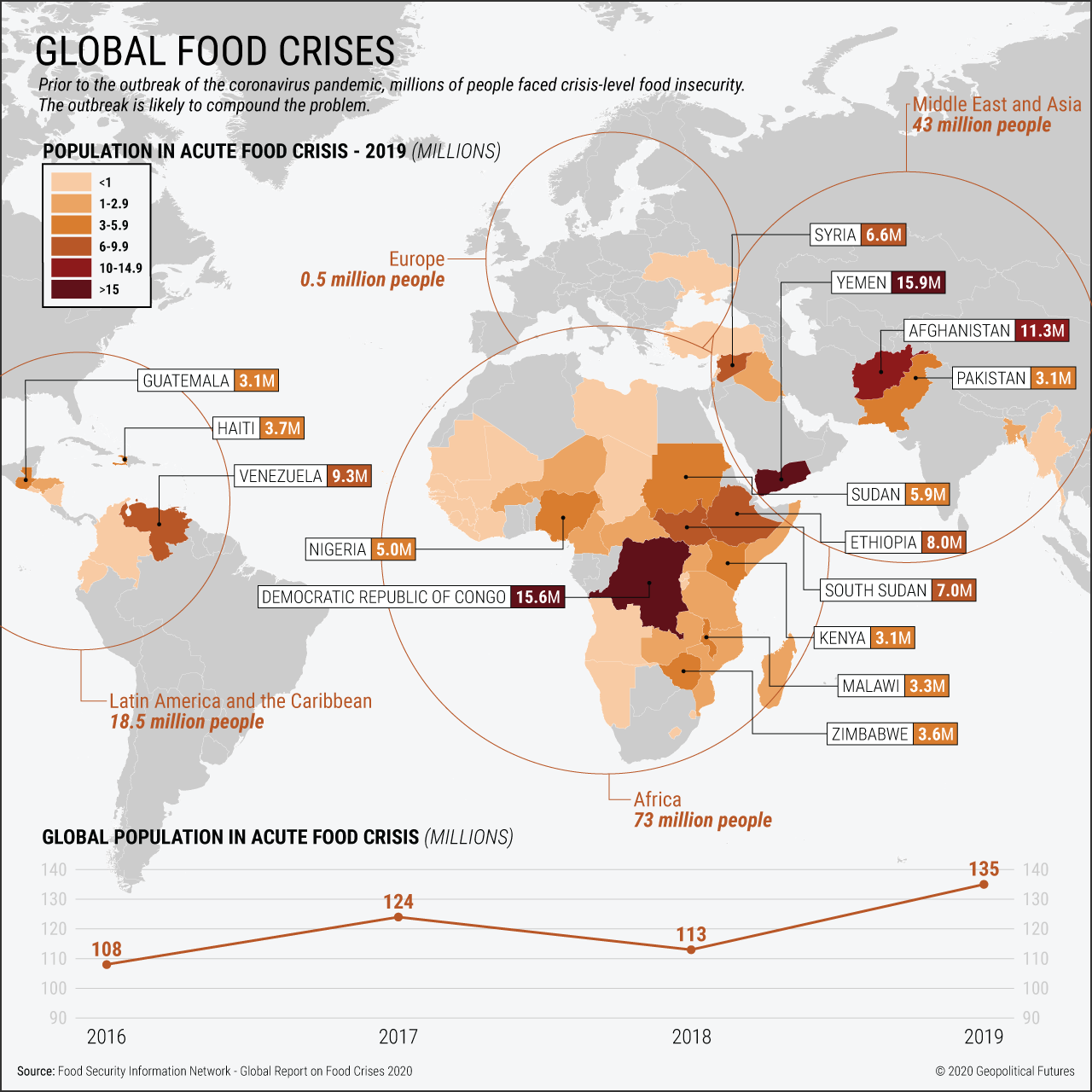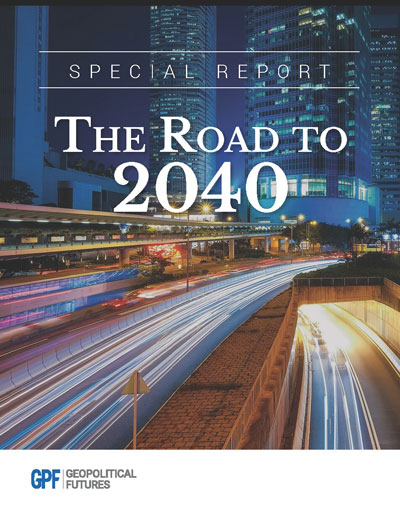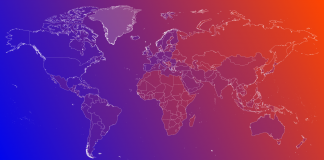Food security has increasingly become a concern across the globe in recent months. A report recently released by the U.N. World Food Programme estimates that approximately 135 million people will face crisis-level food insecurity this year. There are three main drivers of this crisis. The most significant driver is conflict; 77 million people suffering from acute hunger live in conflict-ridden countries, and half of them live in the Middle East and Asia. The second-biggest driver is extreme weather, which is the main cause of severe food insecurity for 34 million people. The third-largest driver is economic shocks, which have resulted in severe food insecurity for 24 million people, primarily in Latin America. The report also found that an additional 183 million people were in “stressed conditions,” meaning they have minimally adequate food consumption and are unable to afford some essential non-food expenditures.
Notably, these forecasts were made before the coronavirus pandemic and do not account for its impact on vulnerable populations. The two main ways COVID-19 may impact food security is by affecting food availability and access. Crops show promising yields this year, but travel restrictions have already started to interfere with farming, transportation of goods and food processing. Many countries, particularly developed ones, have taken measures to protect against supply chain disruptions, but households dependent on food production and related activities are still vulnerable to disruptions in agricultural supply chains. Meanwhile, access to food can be disrupted because of declining incomes. Unemployment has already risen globally, and while governments scramble to prop up their economies, the purchasing power of many consumers will soon be reduced, if it hasn’t been already. Access problems will likely be compounded by rising food prices resulting from travel restrictions, regulatory changes, currency value fluctuations and supply chain disruptions.







 The Road to 2040
The Road to 2040